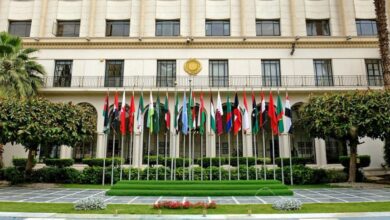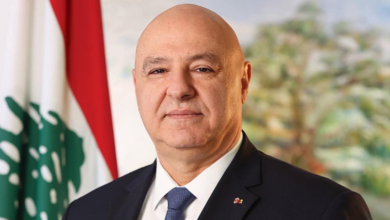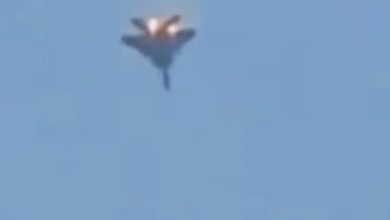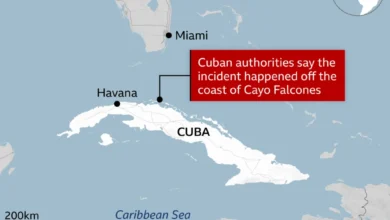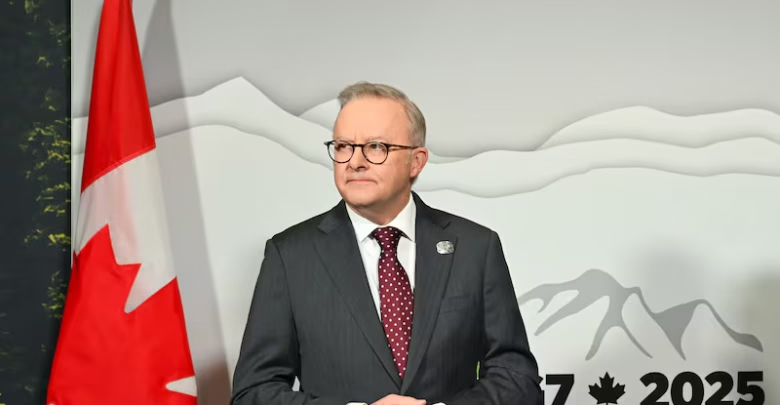
G7 leaders meet in Canada to discuss wars and global economy
The G7 represents 44 per cent of global gross domestic product (GDP) but 10 per cent of the world’s population. Within the group, the US is by far the largest economy.
Leaders of the Group of Seven G7 countries – Canada, France, Germany, Italy, Japan, the United Kingdom and the US – have gathered in Kananaskis, Alberta for the annual summit, with Canada chairing meetings that are expected to centre on the Israel-Iran war, trade, tariffs and the global economy.
US President Donald Trump will have at least three scheduled bilateral meetings during the summit with other world leaders while in Canada, starting on Monday morning with Canadian Prime Minister Mark Carney. The US President is also expected to have meetings with Mexican President Claudia Sheinbaum and Ukrainian President Volodymyr Zelenskyy, according to an administration official.
There is no plan for a joint statement this year from the G7. The last time Canada hosted the G7, in 2018, Mr Trump famously left early and attacked then prime minister Justin Trudeau for being “very dishonest and weak”.
Besides leaders of the G7 countries and the EU, Mr Carney has invited several heads of state from non-G7 countries as guests including Ms Sheinbaum, who confirmed her attendance on Monday after saying in May that she was undecided, and Indian Prime Minister Narendra Modi.
The G7 represents 44 per cent of global gross domestic product (GDP) but 10 per cent of the world’s population. Within the group, the US is by far the largest economy.
Mr Trump has already hit several dozen nations with tariffs that risk a global economic slowdown. There is little progress on ending the wars in Ukraine and Gaza and now a new and escalating conflict between Israel and Iran over Tehran’s nuclear programme.
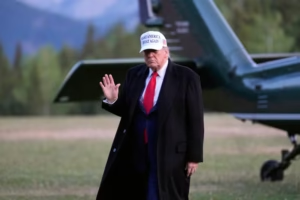
Asked if he planned to announce any trade agreements at the G7 as he left the White House on Sunday, Mr Trump said: “We have our trade deals. All we have to do is send a letter, ‘This is what you’re going to have to pay.’ But I think we’ll have a few, few new trade deals.”
The United Kingdom reached a trade framework with the US that included quotas to protect against some tariffs, but the 10 per cent baseline would remain as the Trump administration is banking on tariff revenue to help cover the cost of its income tax cuts. Canada and Mexico face separate tariffs of as much as 25 per cent that Mr Trump put into place.
Sir Mark Lyall Grant, a former UK ambassador to the UN, has said European nations might try to send “co-ordinated messages” to Mr Trump at the G7 summit.
He told the Today Programme on BBC Radio 4 that all the members of G7 had a “negative consensus”.
“No one participating wants Iran to have a nuclear weapon. They are all concerned about escalation and particularly spillover – attacks on their own nationals or interests in the region, or indeed their own countries. None of them wants to get directly involved,” he said.
“Japan and Canada have been the most critical of Israel, the US and Germany are more standardly pro-Israel and other Europeans are somewhere in the middle.
“Much depends on President Trump. He clearly doesn’t want to get involved but is talking about the countries doing a deal, which is unrealistic.
“More likely they will individually try to have co-ordinated messages to him: that they are happy to see Iran’s nuclear capabilities being degraded and destroyed, but on the other hand they can’t give a green light to [Israeli Prime Minister Benjamin] Netanyahu because what he’s doing is in violation of international law.”
UK Prime Minister Sir Keir Starmer met with Italian leader Giorgia Meloni for his first bilateral meeting at the G7 summit.
“We have much to discuss at this G7, the Middle East, Ukraine, Nato, you name it, but I’m really pleased to be able to have the first bilateral of G7 with you here this evening,” he said.
Ms Meloni thanked the UK for being “very clear” in its stance on people-smuggling and migration. “I’m very happy about all of our co-operation on migration,” she said.
The summit would be a “very good occasion” to discuss issues such as the conflict in the Middle East and Ukraine, the Italian leader said.
Ms Meloni added: “And then many bilateral topics, many very important things that Italy and the UK are doing together also, for example, on defence with the G-Cap (Global Combat Air Programme to develop a sixth generation warplane) and other very strategic initiatives.

